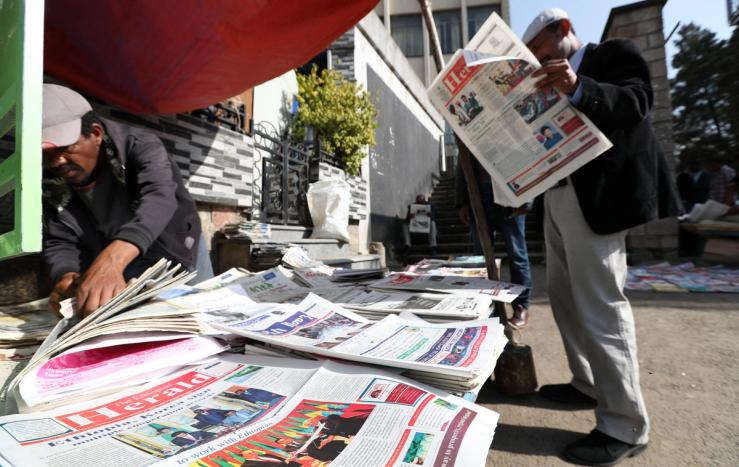Last year, while researching a book about my aunt who lived in Lagos, London, and Paris in the late 1930s and early ’40s, I came across old newspaper clippings that captured some of the everyday details of life at the time in those cities.
It triggered an epiphany: That newspapers weren’t just purveyors of news, they were time capsules, preserving the stories that documented life at any particular place and point in time.
It brought me to a troubling thought: What if, 100 years from now, researchers trying to understand what life in Africa was like in 2025 used today’s media as their sole research tool?
They wouldn’t know what over 70% of the continent thought, did, or cared about. They wouldn’t hear about the young entrepreneurs building businesses out of nothing or the artists, musicians, and filmmakers shaping global culture. They wouldn’t know how the average Nigerian, Gambian, or Ugandan spent their weekends, what they ate, watched and listened to, because so little of the media coverage today reflects everyday life on the ground in Africa.
Africa No Filter’s findings backs this up. Our research into how African media covers the continent found that over 80% of the stories Africans read about other African countries were hard news — mostly negative, event-driven reports on elections, crises, and conflicts. Our Global Media Index revealed the same trend: International outlets continue to rely on familiar tropes while largely ignoring the stories that humanize Africa. And according to our Cost of Media Stereotypes report, this bias towards the negative has a cost: $4.2 billion annually in additional interest payments on its loans, due to disproportionately higher risk premiums.
I am not saying the media should ignore the crises and conflicts — Sudan and DR Congo deserve the world’s attention. But imagine if the media had a mandate to reflect society as it truly is? Imagine if Africa’s 54 countries were covered with the same depth and complexity as, say, Europe. Or that an African fintech founder making waves in global finance got as much attention as the latest coup or the last election.
I know newsrooms are stretched, foreign bureaus are closing, and that journalists “don’t do positive stories or PR for countries” as many practitioners have told me. But I think they are missing the point and it begs the question: If the media isn’t reflecting the world accurately, what is it doing?
I never thought I’d say this, but… thank goodness for social media. Because if traditional media were our only window into the continent, that poor researcher in 2125 would be working with a heavily curated and wildly unbalanced version of Africa. One that showed the continent as one long humanitarian crisis, with occasional violent elections thrown in for variety.
I’d hate for people and the AI tools that will surely be running the world by 2125 to think we Africans spent decades as victims, waiting for handouts, dodging warlords, and surviving plagues — when in reality, we were building, creating, and thriving.
Wouldn’t it be great if the world actually knew this?
Moky Makura is the executive director of Africa No Filter, an advocacy organization that is shifting stereotypical narratives about Africa through storytelling.

